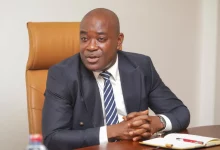A total of 3,178 governance-related protests and demonstrations, resulting in 756 fatalities and 4,276 injuries, have been recorded in West Africa, between January, 2018, and September, 2021.
Rejection of electoral verdicts by opposition parties over alleged irregularities in many countries of the region was recorded by the West Africa Network for Peace Building (WANEP) News.
Dr Mohamed Ibn Chambas, former United Nations (UN) Special Representative of the Secretary-General for West Africa and the Sahel, said these formed part of factors accounting for the recent decline in democratic tenets in West Africa.
He was speaking at the Civil Society Organisations (CSOs) consultative meeting, to review the state of democracy and governance in the Economic Community of West African States (ECOWAS) region, in Accra yesterday.
Dr Chambas noted that no country in West Africa, according to the Economic Intelligence Unit (EIU), could be termed as “fully democratic.”
“Instead of the 15 countries, only two; Ghana and Cape Verde are classified as flawed democracy, whilst seven countries –Senegal, Liberia, Benin, Sierra Leone, The Gambia, Nigeria and Cote d’Ivoire are termed as hybrid,” he stated.
Dr Chambas said, “Six countries – Mali, Togo, Niger, Burkina Faso, Guinea and Guinea Bissau are classified as authoritarian.”
He indicated that the region in recent years had witnessed a clampdown on civil liberties which posed a threat to stability and security.
Dr Chambas said, “The malicious arrests and detentions of citizens who dissent with state powers and authorities, the loss of lives and properties during civil protestations and elections among others, are all indicative of the decline in the state of democracy in the region.”
“The COVID-19 pandemic also offered reasons for silencing dissenting voices in West Africa and this has been witnessed during the electoral processes of member states in 2020 and 2021,” he stated.
Dr Chambas said that the Authority of Heads of State and Government of ECOWAS had tasked the ECOWAS Commission to as a matter of urgency, initiate a process for the review of the 2001 ECOWAS Supplementary Protocol on Democracy and Good Governance in response to the declining trend of democracy in the region.
Hence, he said the seminar was relevant as it would revive energies and advocacies within the framework of putting pressure on governments and institutions to move into full democracies.
Dr Chukwuemeka Eze, Executive Director, WANEP, reiterated that the current dynamics of democracy and governance system of the region depicted a worrying trend that had become a cause of concern to stakeholders worldwide.
Similarly, he noted that there was a democratic deficit where demand exceeded supply and which may lead to social unrest or a return of authoritarianism, stating the recent military coups in Mali and Guinea as reference.
Dr Eze said the CSOs engagement was vital as it could provide pertinent recommendations for policymakers intervention and mitigation.
Organized by WANEP, the meeting was also partnered by the Ministry of Foreign Affairs of Denmark, Austrian Development Cooperation and Sweden.
BY ABIGAIL ARTHUR



